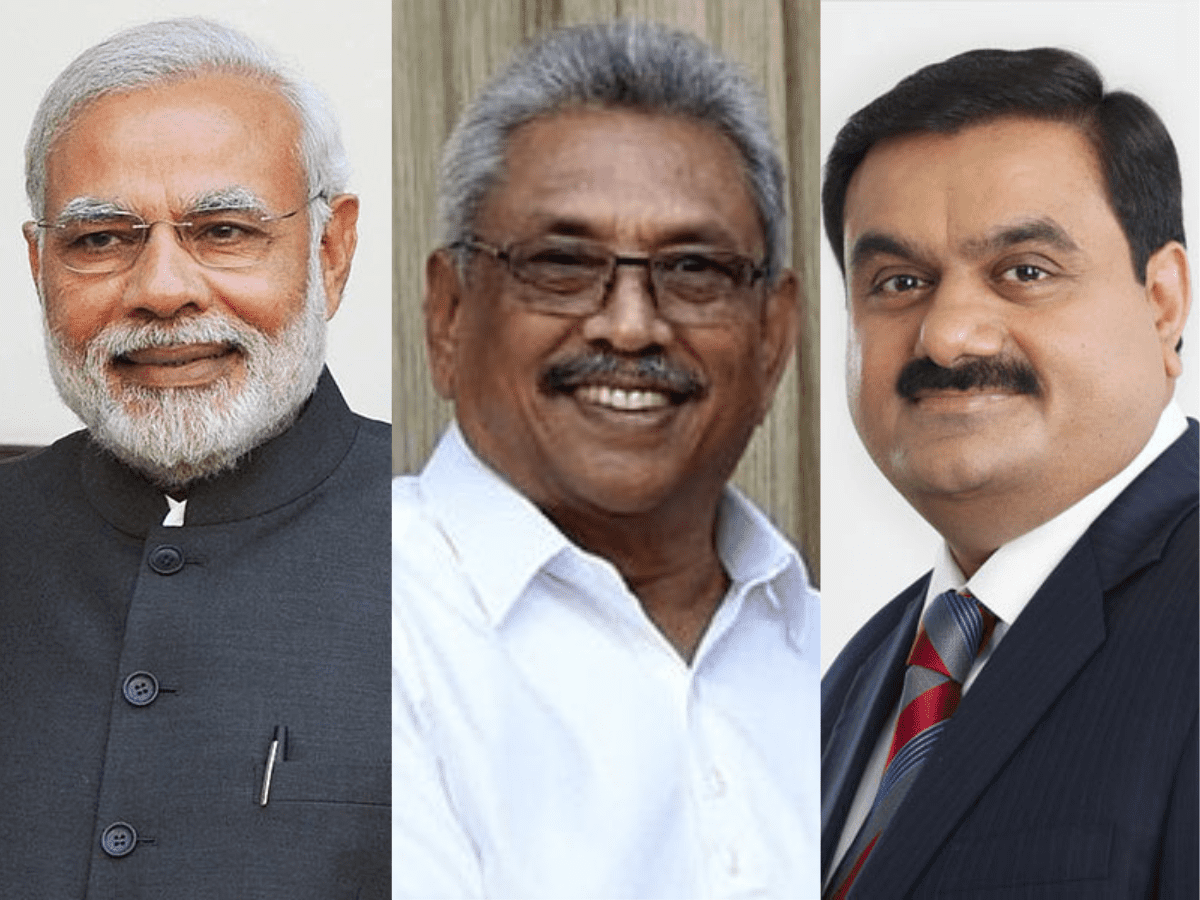
Two days after the chairman of Srilanka’s Ceylon Electricity Board (CEB) chairman MMC Ferdinando made a sensational accusation that Indian Prime Minister Narendra Modi had “pressurised” the Sri Lankan government to allocate a 500MW wind power project to the Adani Group last year, Ferdinando made a big U-turn admitting he “lied”.
Ferdinando said he got emotional due to the allegations levied on him which led him to “lie against the Indian Prime Minister.”
On June 10, Ferdinando appeared in front of the Committee On Public Enterprises (COPE). At that time he said that the Sri Lankan President Gotabaya Rajapaksa told him the Indian PM was insisting the wind power project be allotted directly to the Adani Group, thus evading a competitive bidding process.
“On November 24, 2021, the president summoned me after a meeting and said, India’s prime minister Modi is pressuring him to hand over the project to the Adani group,” Ferdinando said.
“I told him (President) that this is not a matter related to me or the CEB and it should be referred to the Board of Investment,” he told COPE.
“He (President) insisted that I look into it. I then sent a letter (to the treasury secretary) mentioning that the president has instructed me and the finance secretary should do the needful. I pointed out that this is a government-to-government deal,” Ferdinando added.
When COPE’s panel chair Charitha Herath asked the CEB chairman if the deal could be termed as “unsolicited”, the latter replied, “Yes, this is a government-to-government deal, but the negotiations should take place according to the least cost policy mentioned in the act.”
On June 11, President Rajapaksha tweeted denying authorising the deal.
On the same day, Ferdinando said his previous statement was all lies because of an “emotional outburst”. Speaking to a Sri Lankan news channel, News 1st, he said, “I have withdrawn that statement.”
On June 9 the Sri Lankan parliament passed an amendment to the 1989 Electricity Act cancelling competitive bidding. The principal opposition, Samagi Jana Balawegaya (SJB), claimed that the key reason for bringing forward the amendment was to expose the “unsolicited” Adani deal. The SJB demanded that projects beyond 10 MW capacity should go through a competitive bidding process.
On October 21 last year, the Adani Group signed a memorandum of understanding (MOU) with the Ceylon Electricity Board (CEB), Sustainable Energy Authority (SEA) and the Board of Investment (BOI) to develop 500 megawatts of renewable energy projects in Mannar and Pooneryn provinces. The project cost $500 dollars and was expected to complete within a span of one year.
When the MOU was signed, the opposition parties were not happy. Speaking to The Hindu, SJB chief executive Ajith P Perera said, “It is with deep regret that we note that the Adani Group has chosen the back door to enter Sri Lanka. Avoiding competition is not something we take kindly. It hurts our battered economy, aggravates the balance of payment issues, and causes further misery to our citizens.”
Citizens of Sri Lanka have been witnessing a few rocky months of no economic stability, unavailability of food and basic amenities like medicines, electricity, huge debts and drop in foreign currency. India has provided economic assistance mainly in the form of a credit to buy essential items.


